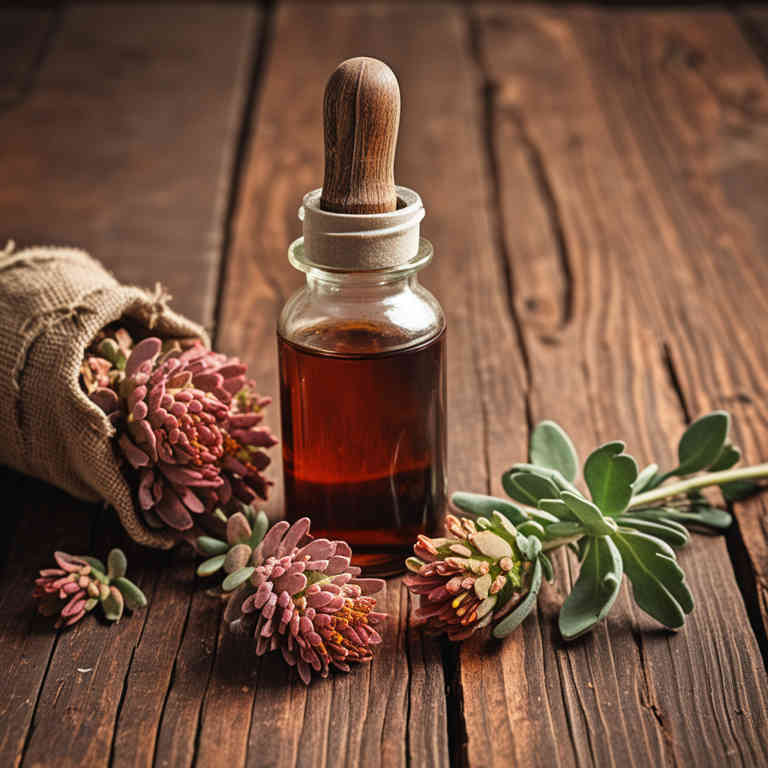Rhodiola rosea tincture for medicinal use

Rhodiola rosea tincture is a concentrated liquid extract made from the roots of the Rhodiola rosea plant, which is native to cold, mountainous regions.
This herb is known for its adaptogenic properties, helping the body resist stress and fatigue. It is commonly used in herbalism to enhance physical and mental performance, support energy levels, and improve mood. The tincture is typically taken in small doses, often diluted in water or alcohol, to harness its beneficial compounds.
It is valued for its potential to promote resilience and balance in the body.
Uses
Rhodiola rosea tincture has been used to enhance physical and mental performance for centuries, particularly in the cold climates of the Arctic and mountainous regions of Asia.
Traditionally, it was revered by ancient cultures such as the Tibetans, Mongols, and Russians for its ability to increase stamina, reduce fatigue, and improve resistance to stress. In modern times, it is widely used as a natural adaptogen to support energy levels, mood, and cognitive function, especially in individuals experiencing stress or burnout. Scientific studies suggest it may help regulate the body's stress response by influencing neurotransmitter activity and hormone balance.
As a result, it has become a popular supplement in both traditional and contemporary wellness practices.
Benefits
Rhodiola rosea tincture has health benefits such as enhancing mental clarity, reducing fatigue, and supporting stress resistance.
It is known for its adaptogenic properties, which help the body cope with physical and emotional stress. This preparation may also improve mood and increase energy levels by supporting the nervous system. Additionally, it has been studied for its potential role in improving cognitive function and athletic performance.
Rhodiola rosea tincture is often used as a natural supplement to promote overall well-being and resilience.
Constituents
Rhodiola rosea tincture active constituents include rosavins, salidrosides, and flavonoids, which are believed to contribute to its adaptogenic properties.
These compounds help the body resist stress and support overall vitality by regulating the nervous system and hormonal balance. Rosavins are primarily responsible for the herb's ability to enhance physical endurance and mental performance. Salidrosides have been studied for their potential antidepressant and anti-fatigue effects.
Flavonoids contribute to the tincture's antioxidant and anti-inflammatory benefits, supporting immune function and cellular health.
Preparation
To make Rhodiola rosea tincture, start by gathering fresh or dried Rhodiola rosea roots.
Wash the roots thoroughly and chop them into small pieces to increase surface area for extraction. Place the chopped roots in a clean glass jar and cover them completely with high-proof alcohol, such as vodka or grain alcohol. Let the mixture sit in a dark place for 4 to 6 weeks, shaking the jar occasionally to ensure even extraction.
After the steeping period, strain the liquid through a cheesecloth or fine mesh strainer to separate the tincture from the plant material, and store it in a dark glass bottle in a cool, dry place.
Side Effects
Rhodiola rosea tincture may lead to increased energy levels, improved mental clarity, and reduced symptoms of stress and fatigue.
It is commonly used as a natural adaptogen to help the body cope with physical and emotional stress. However, possible side effects include insomnia, restlessness, increased heart rate, and gastrointestinal discomfort. In some cases, it may also cause anxiety or mood swings, especially at higher doses.
Individuals with hypertension or those taking medications for mental health should consult a healthcare provider before use.